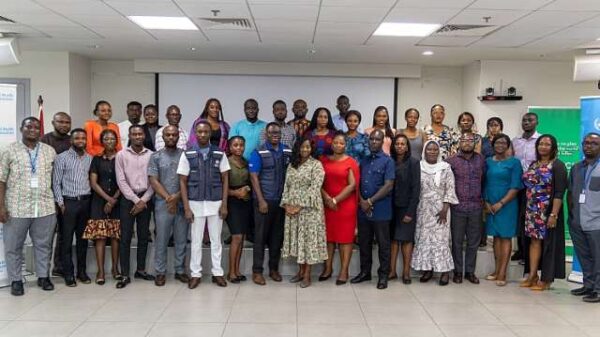 The global tourism industry is set for exceptional growth, with 1.5 billion international trips forecast for 2024, generating a record $1.9t in spending, according to data analytics firm Euromonitor International.
The global tourism industry is set for exceptional growth, with 1.5 billion international trips forecast for 2024, generating a record $1.9t in spending, according to data analytics firm Euromonitor International.
Africa is expected to contribute over $140bn, a more than 30% year-on-year increase from 2023. Yet, evolving trends—shaped by the pandemic, rising demand for wellness and sustainability, and technological innovation—are reshaping the industry. Modern travellers seek meaningful, personalised experiences, prompting businesses to align with evolving preferences.
Beyond attracting visitors, tourism drives economic growth, channelling spending into local economies and uplifting communities. From artisan markets to advanced hospitality brands, the sector fosters growth across payments, mobility, and retail, emphasising its transformative role in driving revenue and fostering economic resilience.
TOP THREE TRENDS TRANSFORMING GLOBAL TOURISM
Sustainability: From intent to action
Sustainability is now a defining expectation for travellers, combining environmental stewardship with creating lasting value. Euromonitor International’s Voice of the Consumer: Travel survey shows 80% of global respondents are willing to pay over 10% extra for sustainable options like eco-friendly accommodations.
In-destination spending on activities such as national parks and guided tours, tied to nature and cultural immersion, is growing. Destinations like Kenya and Morocco excel in luxury eco-tourism, achieving 80% occupancy rates at high-end eco-lodges, fostering local economies, contributing to global climate goals, and building lasting connections within the travel ecosystem.
Technology: Enabling seamless journeys
The digital-first travellers are transforming tourism, with technology integral to every stage of the experience. Travellers now book via mobile platforms or use Augmented Reality (AR) and Virtual Reality (VR) tools to plan trips.
Euromonitor International’s Digital Consumer Survey (2024) found that 25% of respondents already use these technologies to visualise accommodations and attractions.
Immersive tools like Egypt’s AR pyramid tours are expected to attract five million visitors by 2025. Investing in AI, IoT, and robotics enables destinations to deliver seamless, personalised, and sustainable experiences.
Experiential travel: Meeting evolving traveller profiles
Transformative travel dominates demand, with cultural, wellness, and adventure experiences driving a significant share of global tourism revenue in 2023.
However, traditional travellers’ profiles are increasingly blurred. For instance, travellers may combine a luxury eco-lodge in Kenya with co-working-friendly amenities, bridging digital and sustainability priorities.
This emergence of blended profiles reflects a dynamic traveller landscape, requiring businesses to adapt.
Euromonitor International identifies eight key traveller segments: eco-adventurers, blended travellers, leisure seekers, digital travellers, wellness worshippers, adventure lovers, luxury seekers, and cultural explorers. Overlapping interests among these segments necessitate flexible offerings.
{{image}}
AFRICA: A MODEL FOR SUSTAINABLE GROWTH
Africa’s travel and tourism sector exemplifies these global trends, offering untapped opportunities across retail, culinary tourism, and mobility. Despite over 150 million annual passengers, African airports contribute less than 1% of global duty-free sales, highlighting opportunities to invest in immersive retail that blends luxury and local authenticity.
Digital transformation, such as Kenya’s M-Pesa, is enhancing seamless payments and driving equitable growth by boosting rural craft market sales by 30%. Africa’s $40bn consumer food service industry underscores the growing appeal of culinary tourism, as travellers seek local, sustainable experiences.
Destinations like Cape Town’s wine tours and Zanzibar’s farm-to-table dining showcase immersive opportunities that connect food, culture, and sustainability.
Meanwhile, integrated mobility projects, like Kenya’s Standard Gauge Railway, improve accessibility, while cruise tourism is expected to exceed USD 400 million by 2029. Infrastructure projects, such as South Africa’s Cruise Cape Town, prioritise sustainability, positioning Africa as a dynamic, eco-conscious destination.
Strategic investments in experiential retail, fintech-driven inclusivity, and eco-conscious mobility projects elevate Africa as a sustainable and inclusive tourism growth model.
THE FUTURE OF TOURISM: INNOVATION, GROWTH, AND SUSTAINABILITY
Tourism is a transformative force, connecting travellers, brands, and destinations to create sustainable value.
As trends evolve and travellers’ preferences grow complex, the sector must adopt forward-thinking strategies to stay innovative and resilient. Authentic, sustainable, and personalized experiences are key, pushing destinations to exceed traditional offerings.
Destinations must embrace these changes by leveraging technology and fostering cross-industry partnerships to meet evolving preferences effectively.
By creating immersive experiences and cross-industry partnerships, tourism can drive innovation while preserving core values, and ensuring sustainable growth for South Africa, Africa, and the global industry.
























